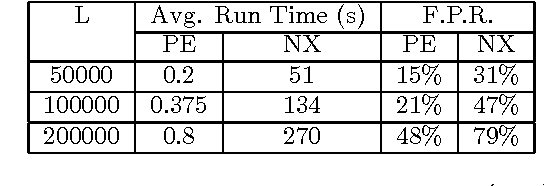Efficient Discovery of Large Synchronous Events in Neural Spike Streams
Paper and Code
Jun 08, 2010



We address the problem of finding patterns from multi-neuronal spike trains that give us insights into the multi-neuronal codes used in the brain and help us design better brain computer interfaces. We focus on the synchronous firings of groups of neurons as these have been shown to play a major role in coding and communication. With large electrode arrays, it is now possible to simultaneously record the spiking activity of hundreds of neurons over large periods of time. Recently, techniques have been developed to efficiently count the frequency of synchronous firing patterns. However, when the number of neurons being observed grows they suffer from the combinatorial explosion in the number of possible patterns and do not scale well. In this paper, we present a temporal data mining scheme that overcomes many of these problems. It generates a set of candidate patterns from frequent patterns of smaller size; all possible patterns are not counted. Also we count only a certain well defined subset of occurrences and this makes the process more efficient. We highlight the computational advantage that this approach offers over the existing methods through simulations. We also propose methods for assessing the statistical significance of the discovered patterns. We detect only those patterns that repeat often enough to be significant and thus be able to automatically fix the threshold for the data-mining application. Finally we discuss the usefulness of these methods for brain computer interfaces.
 Add to Chrome
Add to Chrome Add to Firefox
Add to Firefox Add to Edge
Add to Edge